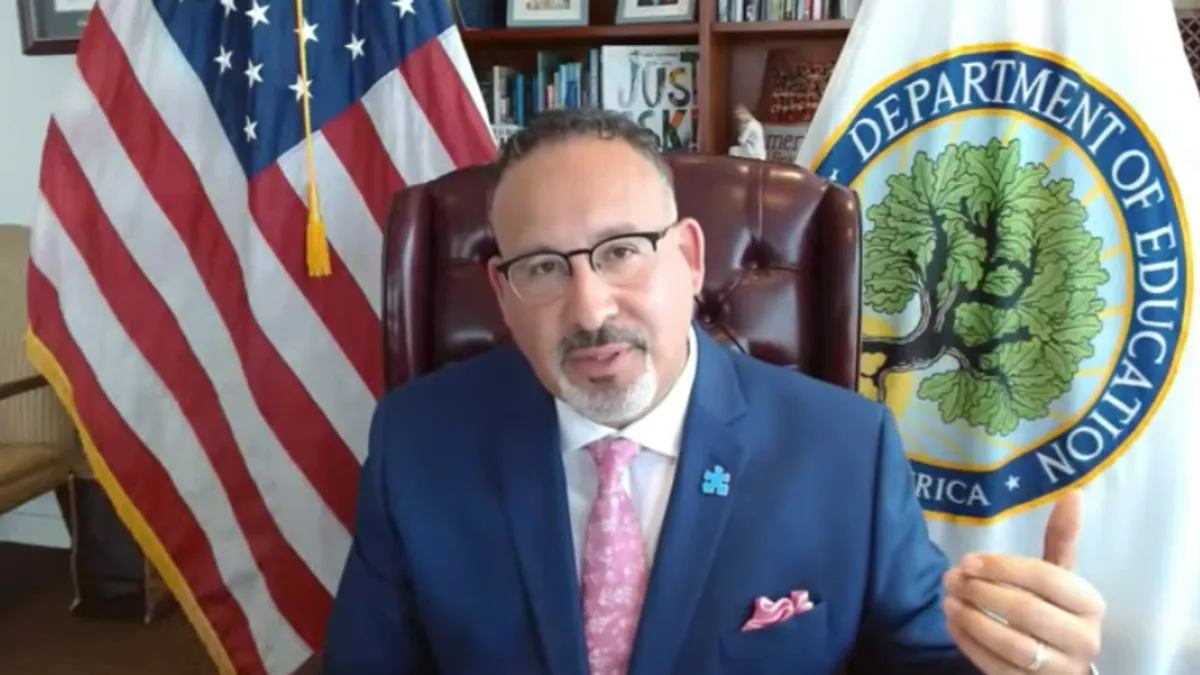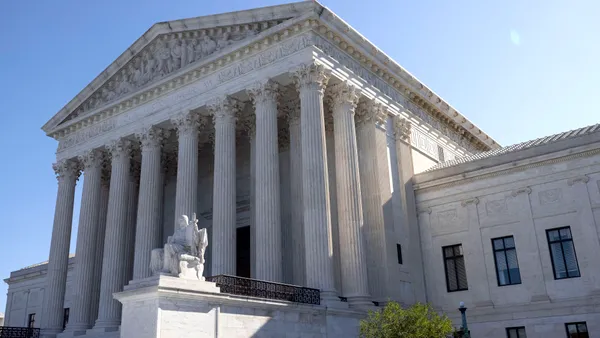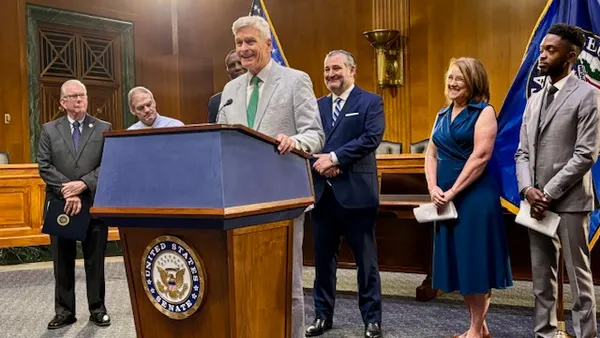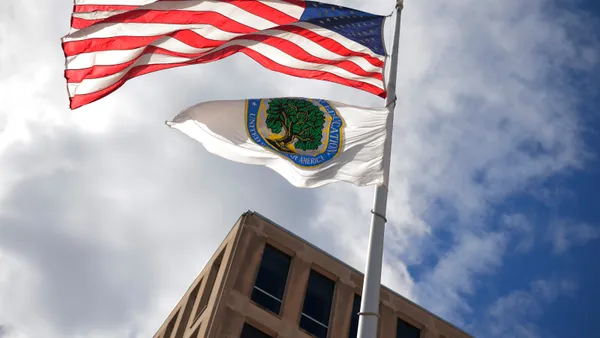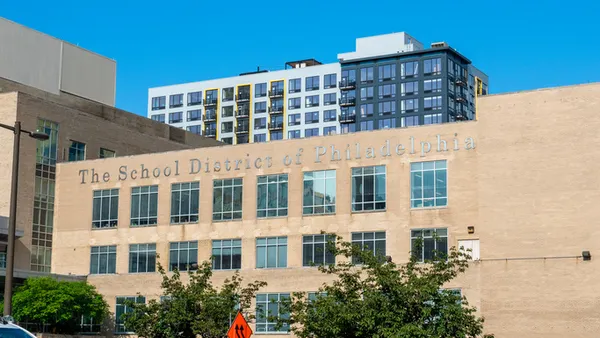Dive Brief:
-
Members of the House Committee on Appropriations education subcommittee said during a virtual hearing Wednesday they are in favor of increasing K-12 funding in the FY 2022 budget, but some Republicans questioned the high levels of proposed allocations, calling the 41% increase over this year’s budget unattainable given the pandemic-related federal emergency funding already approved.
-
The U.S. Department of Education's $102.8 billion request for early childhood education, K-12 programs and higher education programs includes a $20 billion increase in Title I grants for high-poverty schools, a total of $15.5 billion for pre-K-12 special education services, and a new $100 million grant program for school desegregation efforts.
-
In addition to fiscal priorities, committee members during the hearing questioned U.S. Secretary of Education Miguel Cardona about the Education Department’s activities relating to equitable practices, civics education, the participation in competitive sports of students identifying as transgender, in-person learning opportunities and more.
Dive Insight:
In Cardona’s first congressional appearance to advocate for the Education Department’s annual allocation, he told members of the Labor, Health and Human Services, Education and Related Agencies Subcommittee that the FY 2022 proposal aims to “reverse years of underinvestment in federal education programs and begins to address the significant inequities that millions of students — primarily students of color — and teachers confront every day in underserved schools across America.”
Specifically, he pointed out how the doubling of Title I funding and a $1 billion investment in student mental health supports is critical as schools recover from the pandemic and after years of slow growth in Education Department coffers.
Ranking Member Tom Cole, R-Okla., said although he supports funding increases to critical education programs, such as special education services, the overall level of proposed spending is “simply unnecessary, irresponsible and unacceptable,” citing concerns about national government debt levels and the underfunding of the Department of Defense compared to domestic programs.
A hearing with the Senate Appropriations education subcommittee has not yet been scheduled. FY 2022 begins Oct. 1.
Here are some of the other K-12 issues raised at Wednesday’s subcommittee hearing:
-
Civics education. Cole and Rep. John Moolenaar, R-Mich., said they were concerned about an education department proposed rule for civics education grants that refers to The 1619 Project, a long-form journalism project that, among other features, promotes teaching about the consequences of slavery.
“These references have politicized civic education, whether intentionally or unintentionally, and created an impression that the administration cannot be trusted to promote civic education in a bipartisan ideological way,” said Cole, mentioning that several members of Congress are working on a bipartisan bill to expand access to civics education.
Cardona responded that curriculum offerings are a local district responsibility and that the federal government will not mandate what curriculum districts use. -
Competitive sports participation of youth identifying as transgender. Under questioning from Rep. Andy Harris, R-Md., about whether Cardona would “support biological boys competing with girls in school sports,” Cardona said, “As I said then, I'll say again: Transgender students deserve every opportunity to participate in all school activities.”
-
In-person learning. Figures released Thursday by the Education Department show that in March, 54% of K-8 schools were open for full-time in-person learning to all 4th- and 8th-grade students and 88% were open for either full-time in-person or hybrid learning. During the House subcommittee hearing, Cole asked Cardona whether the emergency allocations will be connected to school reopening efforts. Cardona said while he hopes schools open fully this spring and that the department will work to problem-solve with school systems, it is his expectation all schools will be open to all students five days a week in the fall. Funding could be withheld if schools don’t reopen fully, Cardona said.
State applications for American Rescue Plan funds, due June 7, are to include details about how states are maximizing in-person instruction and addressing education inequities.



